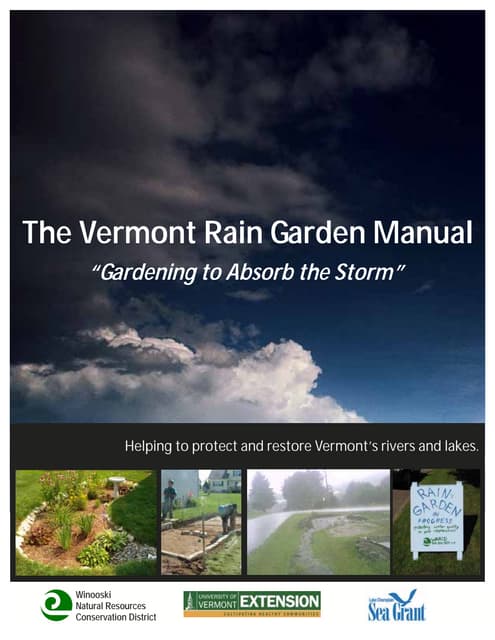REGION – Seed catalogues in the mail and planting supplies at the store are welcoming signs of spring. Given the rains and flooding of 2023, now is a good time to think about creating gardens that can help protect your property as well as local rivers, streams, and lakes.

Rain gardens are a cost-effective stormwater management tool that can be incorporated in a variety of landscapes. A rain garden is a bowl-shaped garden designed to capture and absorb rainfall and snowmelt. When stormwater is captured, it helps to reduce the volume of runoff, thereby reducing flooding that can erode stream banks. It also helps to reduce excess nutrients, sediment, and pollutants from entering our water ways.
To learn how to create a rain garden, check out the Vermont Rain Garden Manual online at www.dec.vermont.gov/sites/dec/files/wsm/erp/docs/sw_WNRCDrain garden manual.pdf, or pick up a copy at the Cavendish or Ludlow Libraries. This manual includes “The Vermont Rain Garden Plant List” for ferns, grasses, perennials, shrubs, and trees which are suitable for Vermont. This is a handy list to take when going plant shopping this spring, as it provides information on what type of sun exposure a plant needs, salt tolerance, seasonal interest, what pollinators it attracts, and lots more useful information.
While rain gardens are not recommended in a naturally wet area of a lawn, there are other trees and shrubs to plant that will absorb the water in such locations. If you have a low-lying spot that collects rain, an easy solution is to use this space to grow plants that thrive in wet areas. The right plants will absorb the moisture and prevent runoff. Use the plant list in the manual to determine what might work best for your property.
If you are wanting to know more about planting to maintain riverbanks in and around the Black River watershed, contact Black River Action Team (BRAT) at blackrivercleanup@gmail.com or 802-738-0456.
If you have gardening questions, take advantage of the free University of Vermont (UVM) Extension Master Gardener Hotline. Volunteers are available to take phone calls on Mondays, Wednesdays, and Thursdays, from 9 a.m. – 12 p.m., at 802-656-5421. Or you can submit your question online at www.uvm.edu/extension/mastergardener/helpline.